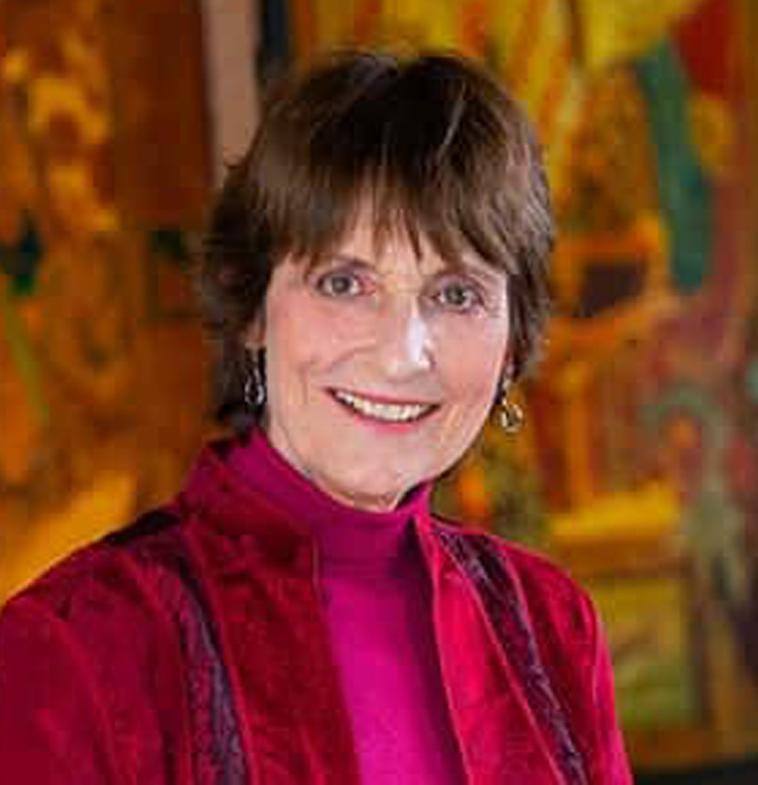About the Horton Award
The Horton Award recognizes individuals or organizations who are dedicated to social or environmental causes and have used management skills to benefit society. This award is named for Professor Ray Horton, who established social enterprise as a program at Columbia Business School.
 “Global progress toward gender equality in the law has decelerated to its slowest pace in 20 years. Today, the UN estimates that at current funding rates of 1.9% of philanthropic dollars going to women and girls’ issues, it will take 300 years to achieve gender equality. That number a year ago, was 132 years. We cannot let this stand. We will not,” Mona Sinha said, describing the post-pandemic forecast for equality, while adding her determination not to let it happen on her watch.
“Global progress toward gender equality in the law has decelerated to its slowest pace in 20 years. Today, the UN estimates that at current funding rates of 1.9% of philanthropic dollars going to women and girls’ issues, it will take 300 years to achieve gender equality. That number a year ago, was 132 years. We cannot let this stand. We will not,” Mona Sinha said, describing the post-pandemic forecast for equality, while adding her determination not to let it happen on her watch.
Mona’s work was recognized in 2023 with the Horton Award for her dedication to the social enterprise community and for her extraordinary strategic and philanthropic leadership to elevate women’s issues worldwide. The Tamer Center at Columbia University Business School focuses on the interconnectedness between business and equality.
In her acceptance speech, Mona stressed the bottom line. “Equality is an imperative that needs both men and women to uphold and champion. In business, as in life, treating every human with respect and dignity is simply the right thing to do. Without it, individuals cannot thrive, and, by extension, businesses will not either. Denying women legal equality is incredibly bad business. In fact, any inequality is bad business.”
As Global Executive Director of Equality Now, strategizing and leading the charge to achieve global legal equality is Mona’s business. Earlier in her speech, she wondered why, as student at Columbia in the 1990s, they were not encouraged to consider gender equality and justice frameworks as business models. They didn’t look at the detrimental consequences of limiting over half of the population’s ability to contribute only a fraction of their potential. But today, it’s clear the inequities that women face in the workplace and at home tether them to impossible odds.
Mona went further to describe other issues that hold women back. “Think about it: If women are forced to deal with the physical and mental trauma of rape, sex trafficking, child marriage, honor killings, discriminatory inheritance rights, and so much more without legal protection, their ability to engage in work or society is fundamentally compromised.”
Equality Now’s mission is to achieve equality through legal means and create a just world for women and girls. Their international network of lawyers, activists, and supporters challenge ingrained cultural assumptions and call out inequality wherever they find it. Mona called Equality Now’s pursuit of equality “relentless” and pointed out “the foundation of equality rests with the law.” Mona said, “Despite the clear data supporting this work, it is an uphill battle. But Equality Now has won some sweeping victories and has successfully changed about 70 laws around the world.”
Mona drew a bleak picture for the future of women, pointing out that only three-quarters of women have the legal rights of men; that’s 2.4 billion women globally who lack those rights. And she clarified that this was not just other countries. “This is right here, in the US where, let’s not forget, men continue to be paid 27% more than women for the same work…and where women holding barely a quarter of all congressional seats is actually a record.”
However, Equality Now is relentless in its support of “a world in which everyone enjoys equal rights, freedoms, and respect regardless of their gender or intersectional identities.” Mona said that the need has never been more urgent. For example, here, in the US, we’re marking 100 years since the ERA was first introduced, yet it still has not been amended to the Constitution to give everyone equal rights and legal protections.
Mona said that everyone can do something: corporations, foundations, and individuals can support equality by funding women; we can encourage media to make 50% of their stories about women; we can all listen, learn, and look for areas where we can engage and make meaningful change. In summing it up, Mona said, “The business of gender equality is bigger than any one person, or any one organization or any one sector, or spot on the globe.” She called it the “greatest impediment to solving the problems that are poised to define our future.”
Finally, Mona stressed the importance of elevating women’s voices and asked everyone to join in the fight to define our own future with full equality. She said, “It will take more people, of every background, race, and gender, in every corner of the world and sector of business, who make it their business to do more than care about equality, but to act.”
To learn more about Equality Now and Mona’s fight for equal justice and rights for women and girls, listen to her podcast interview on Smart, Amazing Conversations with Dr. Nancy, and check out Equality Now’s website.

